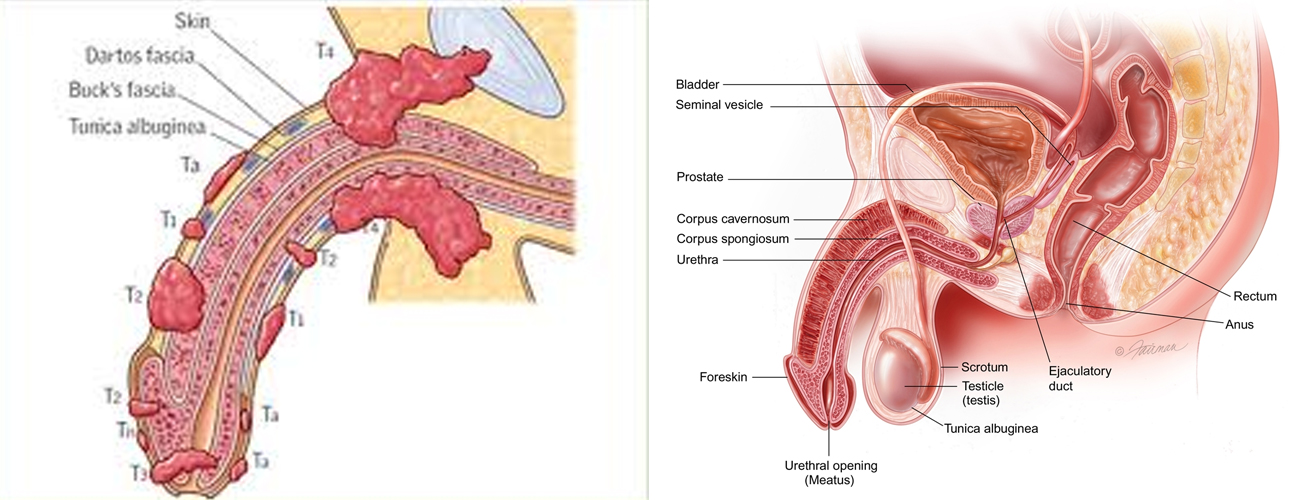Services
- Home
- Uro-Oncology Malignancies

Penis
Penile uro-oncology focuses on the diagnosis, treatment, and management of malignant conditions affecting the penis, including cancers such as penile squamous cell carcinoma, melanoma, and rarer forms like basal cell carcinoma and sarcoma. These malignancies are often linked to risk factors like human papillomavirus (HPV) infection, smoking, chronic inflammatory conditions, and poor hygiene, particularly in uncircumcised men.
Penile cancer typically presents with symptoms such as a painless lump, ulcer, or lesion on the penis, changes in skin color, or discharge. Early detection and diagnosis are crucial for better outcomes. Diagnosis involves clinical examination, imaging, biopsy, and sometimes sentinel lymph node biopsy to determine the stage and spread of cancer.
Treatment options vary depending on the stage and extent of the malignancy and may include surgical interventions such as partial or total penectomy (removal of part or all of the penis), lymph node dissection, and reconstructive surgery for post-operative restoration of function and appearance. Additionally, radiation therapy, chemotherapy, and immunotherapy may be employed, particularly in advanced stages or recurrent cases.
Multidisciplinary care is essential in managing penile cancers, often involving urologists, oncologists, pathologists, and reconstructive surgeons to address both oncological and functional outcomes. Early detection and prevention strategies, including HPV vaccination, are key in reducing the incidence of penile malignancies.
